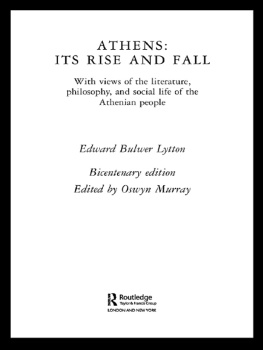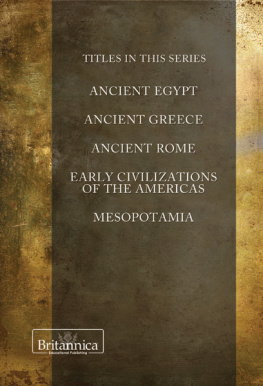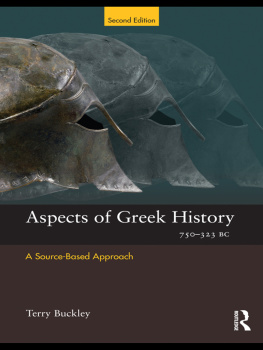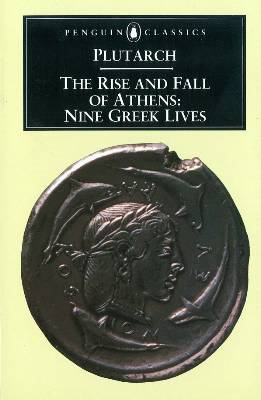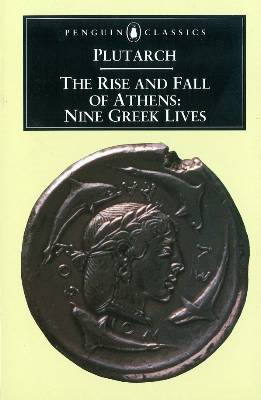DEDICATION.
TO HENRY FYNES CLINTON, ESQ., etc., etc. AUTHOR OF THE FASTI HELLENICI.
My Dear Sir,
I am not more sensible of the distinction conferred upon me when you allowed me to inscribe this history with your name, than pleased with an occasion to express my gratitude for the assistance I have derived throughout the progress of my labours from that memorable work, in which you have upheld the celebrity of English learning, and afforded so imperishable a contribution to our knowledge of the Ancient World. To all who in history look for the true connexion between causes and effects, chronology is not a dry and mechanical compilation of barren dates, but the explanation of events and the philosophy of facts. And the publication of the Fasti Hellenici has thrown upon those times, in which an accurate chronological system can best repair what is deficient, and best elucidate what is obscure in the scanty authorities bequeathed to us, all the light of a profound and disciplined intellect, applying the acutest comprehension to the richest erudition, and arriving at its conclusions according to the true spirit of inductive reasoning, which proportions the completeness of the final discovery to the caution of the intermediate process. My obligations to that learning and to those gifts which you have exhibited to the world are shared by all who, in England or in Europe, study the history or cultivate the literature of Greece. But, in the patient kindness with which you have permitted me to consult you during the tedious passage of these volumes through the pressin the careful advicein the generous encouragementwhich have so often smoothed the path and animated the progressthere are obligations peculiar to myself; and in those obligations there is so much that honours me, that, were I to enlarge upon them more, the world might mistake an acknowledgment for a boast.
With the highest consideration and esteem,
Believe me, my dear sir,
Most sincerely and gratefully yours,
EDWARD LYTTON BULWER
London, March, 1837.
ADVERTISEMENT.
The work, a portion of which is now presented to the reader, has occupied me many yearsthough often interrupted in its progress, either by more active employment, or by literary undertakings of a character more seductive. These volumes were not only written, but actually in the hands of the publisher before the appearance, and even, I believe, before the announcement of the first volume of Mr. Thirlwalls History of Greece, or I might have declined going over any portion of the ground cultivated by that distinguished scholar . As it is, however, the plan I have pursued differs materially from that of Mr. Thirlwall, and I trust that the soil is sufficiently fertile to yield a harvest to either labourer.
Since it is the letters, yet more than the arms or the institutions of Athens, which have rendered her illustrious, it is my object to combine an elaborate view of her literature with a complete and impartial account of her political transactions. The two volumes now published bring the reader, in the one branch of my subject, to the supreme administration of Pericles; in the other, to a critical analysis of the tragedies of Sophocles. Two additional volumes will, I trust, be sufficient to accomplish my task, and close the records of Athens at that period when, with the accession of Augustus, the annals of the world are merged into the chronicle of the Roman empire. In these latter volumes it is my intention to complete the history of the Athenian dramato include a survey of the Athenian philosophyto describe the manners, habits, and social life of the people, and to conclude the whole with such a review of the facts and events narrated as may constitute, perhaps, an unprejudiced and intelligible explanation of the causes of the rise and fall of Athens.
As the history of the Greek republics has been too often corruptly pressed into the service of heated political partisans, may I be pardoned the precaution of observing that, whatever my own political code, as applied to England, I have nowhere sought knowingly to pervert the lessons of a past nor analogous time to fugitive interests and party purposes. Whether led sometimes to censure, or more often to vindicate the Athenian people, I am not conscious of any other desire than that of strict, faithful, impartial justice. Restlessly to seek among the ancient institutions for illustrations (rarely apposite) of the modern, is, indeed, to desert the character of a judge for that of an advocate, and to undertake the task of the historian with the ambition of the pamphleteer. Though designing this work not for colleges and cloisters, but for the general and miscellaneous public, it is nevertheless impossible to pass over in silence some matters which, if apparently trifling in themselves, have acquired dignity, and even interest, from brilliant speculations or celebrated disputes. In the history of Greece (and Athenian history necessarily includes nearly all that is valuable in the annals of the whole Hellenic race) the reader must submit to pass through much that is minute, much that is wearisome, if he desire to arrive at last at definite knowledge and comprehensive views. In order, however, to interrupt as little as possible the recital of events, I have endeavoured to confine to the earlier portion of the work such details of an antiquarian or speculative nature as, while they may afford to the general reader, not, indeed, a minute analysis, but perhaps a sufficient notion of the scholastic inquiries which have engaged the attention of some of the subtlest minds of Germany and England, may also prepare him the better to comprehend the peculiar character and circumstances of the people to whose history he is introduced: and it may be well to warn the more impatient that it is not till the second book (vol. i., p. 181) that disquisition is abandoned for narrative. There yet remain various points on which special comment would be incompatible with connected and popular history, but on which I propose to enlarge in a series of supplementary notes, to be appended to the concluding volume. These notes will also comprise criticisms and specimens of Greek writers not so intimately connected with the progress of Athenian literature as to demand lengthened and elaborate notice in the body of the work. Thus, when it is completed, it is my hope that this book will combine, with a full and complete history of Athens, political and moral, a more ample and comprehensive view of the treasures of the Greek literature than has yet been afforded to the English public. I have ventured on these remarks because I thought it due to the reader, no less than to myself, to explain the plan and outline of a design at present only partially developed.
London, March, 1837.



